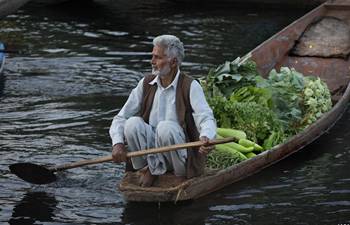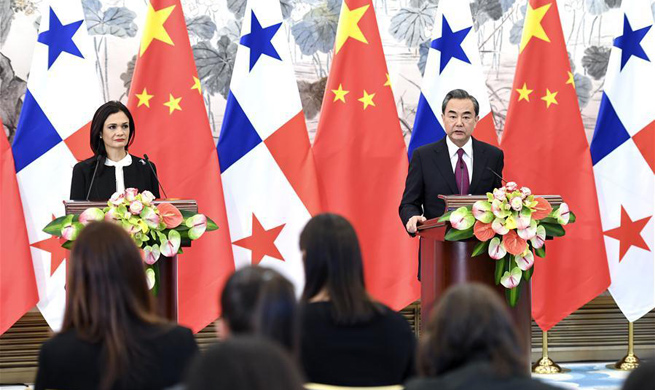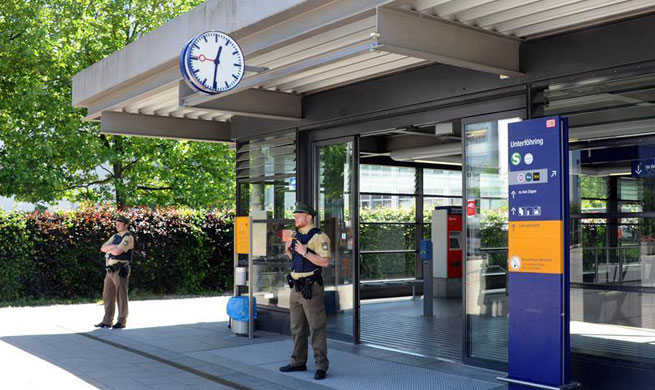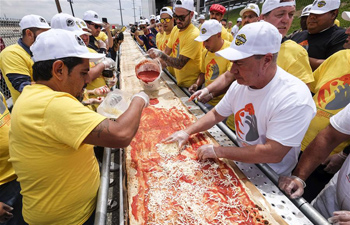MANZANILLO, Cuba, June 13 (Xinhua) -- The Cuban government has announced it will seek to boost national agricultural production, trying to reduce the billions the country spends to buy food on the international market.
The effort is evident in places such as the province of Granma, about 675 km east of Havana.
Granma, homeland of some 800,000 Cubans, is a largely agricultural territory and currently the main rice producer on the island, although it cannot meet the needs of a growing market.
Alexander Rojas, a local official from the Ministry of Agriculture, explains that Granma grows all crops to some extent, except for lemons, although rice dominates.
"This province has produced 12,000 tons of rice in the first five months of the year, with yields above 4.6 tons per hectare," said Rojas.
The organic production of bee honey is also fundamental for Granma, being the second producer in the country after Matanzas, collecting 955 tons last year.
"All this production is undertaken on an agro-ecological basis, since no chemical products are applied," explained the official.
Rojas highlighted the agricultural success of the Omar Rivero cooperative, located in the municipality of Manzanillo.
This cooperative comprises 250 members and is spread over more than 2,000 hectares. It is mainly engaged in the cultivation of sugar cane, although it has diversified its production toward other vegetables, grains, and fruits.
Miguel Pereira has been the president of this cooperative for 25 years and his eyes still shine when he talks to Xinhua about the results, especially about the unit's growth plans.
That cooperative was born over 30 years ago and since then its productive contribution has increased at least fourfold, although Pereira proudly pointed out that its main virtue is to have become a family.
"The cooperative, based on its concept of unity, shares what it has as a very large family," he stressed and recalled that the productive results benefit the families of the workers but also 120 retired staff.
However, Pereira does not limit his dreams to "what we are doing now" and said that "in two years, we will be among the best in the country by what we will produce and offer."
This cooperative is one of more than 300 existing in the province, which all try to meet governmental food production plans.
Cuba allocates about 2 billion U.S. dollars annually to purchase food from abroad but experts believe 60 percent of that burden could be produced in the country.
The current reform process favors productive bases, especially the cooperatives, considered as the most collective form of non-state management, as a way to guarantee the basic basket.
Cubans receive each month, subsidized by the government, a minimum set of food rations that are distributed equally for all, ranging from a daily portion of bread to a small serving of chicken.
















